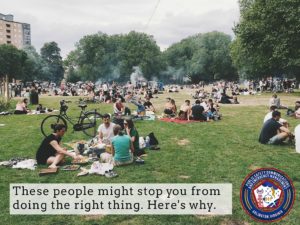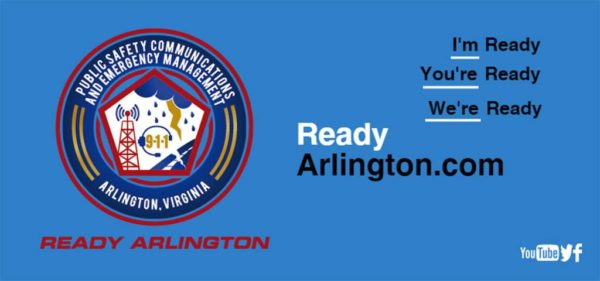This biweekly column is sponsored by the Arlington Office of Emergency Management.
You’ve heard us say it once, you’ll hear us say it again, and you’re probably tired of hearing it: if you see something, say something.
So why do we have to keep telling you?
And why are we telling you now?
It boils down to the scientific phenomena known as bystander effect. The bystander effect occurs when the presence of other people discourages someone from acting or intervening during an emergency situation. The more bystanders there are, the less likely it is that any of them will help — they assume someone else will.
This is commonly known as “diffusion of responsibility” and its why many accidents, crimes, and suspicious packages go unreported. Another factor at play is “social conformity,” or the instinct to read social cues and mirror the behavior of the people around us. If other people aren’t helping, neither will we.
It’s no secret that summer time weather and travel will bring crowds to Arlington. Our community is rich with farmer’s markets, 5K runs, civic association parties and food festivals. These events bring our neighbors closer together and build relationships between the people that live, work and play here. It brings strength to our social fabric.
But with any gathering of people, know that the bystander effect will probably kick in. People may see a suspicious bag and think “I’m sure someone will handle this.” They might see a person asleep in the sidewalk and think “He’s probably fine.” They may see a motorist seated by their car on the side of the road and think “She doesn’t really need my help.”
So how do we beat the bystander effect?
 First, it’s important to understand that people that ignore emergency situations or victims in distress aren’t bad people. It’s just part of their human psychology. This is where you can step in — expect that others won’t help. Make a conscious effort to be the person who will act. When you do this, you can actually leverage social conformity to your advantage — others will see you helping and start to help as well.
First, it’s important to understand that people that ignore emergency situations or victims in distress aren’t bad people. It’s just part of their human psychology. This is where you can step in — expect that others won’t help. Make a conscious effort to be the person who will act. When you do this, you can actually leverage social conformity to your advantage — others will see you helping and start to help as well.
We also know that some people have a fear of calling for emergency services. That’s reasonable: it’s estimated that on average, a person in the U.S. will only call 9-1-1 twice in their entire lives, so it’s not like they get a lot of practice. It’s not the only reason people avoid calling, but it is one we can address right here, right now.
So make a commitment this summer to be the hero. Be the person who will act and report suspicious activity, crimes, and accidents — thereby helping others in our community. (Need a reminder about what suspicious activity is? Check out this helpful guide. It’s also has info on protecting civil rights and liberties.)
Overall, Jack Brown, the Director of Arlington’s Department of Public Safety Communications and Emergency Management, says it best: “We have a great community and excellent public safety services. Everyone, including the public, is on our team to keep Arlington safe.”


